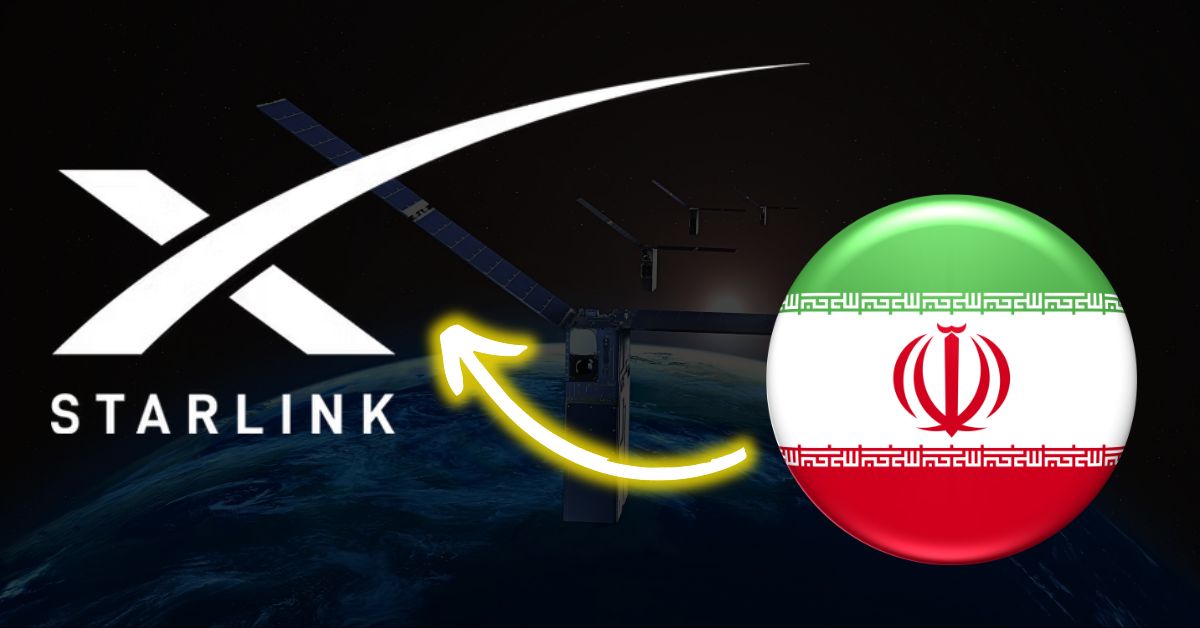In a move that feels ripped from the pages of a dystopian novel, Iran’s parliament has voted to ban Elon Musk’s Starlink satellite internet service. It’s more than just a policy change—it’s a powerful warning.
Anyone caught using the SpaceX-operated internet network now risks fines, public flogging, or up to two years in prison, according to Iranian state media. And while the law still awaits final approval, its message is crystal clear: Tehran is drawing a red line in the digital sand.
This isn’t just about internet access. It’s about control, power, and a growing fear inside Iran’s leadership that the information war is slipping out of their hands.
Why the Ban?
The timing of the ban is no coincidence. It comes in the aftermath of U.S. and Israeli military strikes, amid a region already simmering with geopolitical tension.
In this context, Iran views Starlink not as a harmless tech innovation, but as a direct threat—a tool of foreign influence and espionage beaming uncensored information right into the heart of a tightly controlled society.
Iran’s new legislation doesn’t stop with just banning Starlink. It expands state powers to monitor and punish digital activities tied to foreign governments.
Espionage laws have been toughened, and the new bill defines even passive collaboration with “hostile” nations like the U.S. or Israel—as “corruption on earth” a charge that can carry the death penalty under Iranian law.
That includes a chilling list: cyberattacks, drone surveillance, sabotage technology, or even receiving money from a foreign intelligence group. No action required just the association is enough
The story behind the ban goes back just a couple of weeks. On June 14, a day after Israeli airstrikes hit Iran, Elon Musk posted a cryptic message on X (formerly Twitter):
“The beams are on.”

That short post meant one thing—Starlink had gone live over Iran.
At the time, Iran was in the middle of a near-total internet blackout. The government had shut down access to major platforms and throttled speeds, hoping to block both news from getting in and protest footage from getting out. But Musk’s move changed the game.
Suddenly, people could connect. They could speak. They could bypass firewalls and censorship. For ordinary Iranians, Starlink became more than an internet provider, it became a symbol of defiance, a thread of hope during a time of fear and repression. And for the Iranian government, it was a threat.
A New Front in the Digital Cold War
This battle over Starlink isn’t just about Iran. It reflects a broader truth about the world we live in now: satellite internet, once seen as a luxury or a convenience, has become a weapon one that authoritarian regimes fear and open societies increasingly rely on.
When a private company like SpaceX can beam high-speed, unfiltered internet to any corner of the globe—even over sovereign airspace, it challenges traditional notions of borders, control, and power.
Iran sees Starlink not just as foreign tech, but as a foreign agent one capable of igniting dissent, exposing state secrets, and breaking the chains of censorship. In this new age, cyberspace is no longer separate from real-world geopolitics. It is the battlefield.
For Iranians, the ban on Starlink may feel like yet another door slammed shut. A brief window of connection—snatched away. But the mere fact that Starlink worked, that it existed at all, is proof of how fast the rules of engagement are changing.
Technology moves faster than governments can legislate. It challenges authority, tests boundaries, and gives power to the people especially in places where that power has been denied.
For Elon Musk and other tech leaders, this is also a wake-up call. The days of operating above politics are over. Whether it’s Starlink, Tesla, or X, their platforms are now players on a global stage and sometimes, they land right in the crosshairs.
Iran’s reaction shows just how high the stakes are. Satellite internet is no longer just a way to stream videos or send emails. It’s a tool of freedom or subversion, depending on your perspective.
Iran’s crackdown is not just about preventing access, it’s about controlling the narrative. It’s about silencing voices before they can rise. But if history and technology have taught us anything, it’s that information finds a way. Even with threats of prison and flogging, people will find cracks in the firewall. They always do.
In the end, this story is about more than Elon Musk, or Starlink, or a single law in a single country. It’s about a global struggle over truth, freedom, and the future of the digital world. And that’s a fight that’s just beginning.
Share via:


















